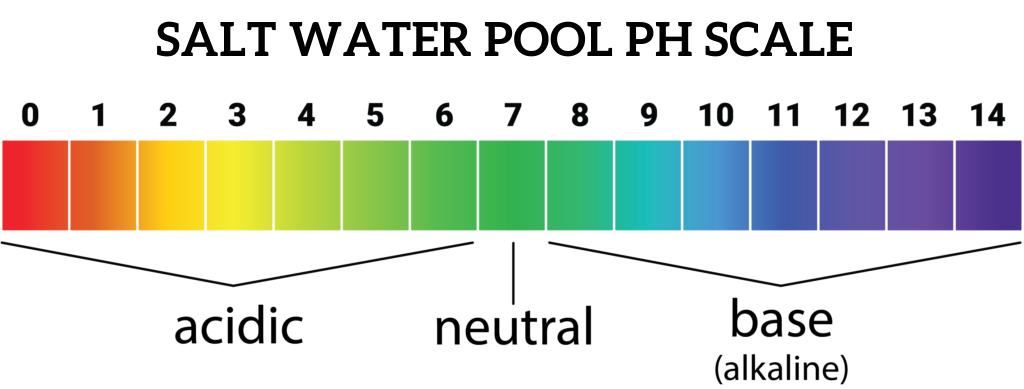Why Does My Salt Water Pool Have a High pH?


Pools are a big part of the American summer. In 2015 alone, American homeowners installed up to 5.1 million inground pools. Pool maintenance is an essential part of owning one of these inground pools whether you own a chlorine or a salt water pool. However, one of the difficulties of cleaning your own pool is knowing which chemicals to use.
If you choose to clean your pool yourself and not use salt water pool cleaning services, you may end up with a saltwater pool that has a relatively high level of salt water pool pH, then the question that’s most commonly asked is why is my salt water pool pH level always high in my saltwater pool? What can you do if the pH level in your saltwater pool continues to rise despite your best efforts to reduce it?


Here’s Why Your pH Level in Your Salt Water Pool Is Higher Than Usual
A salt water pool creates sodium hydroxide as a byproduct because the sodium in the water combines with the oxygen and hydrogen molecules. One of the reasons behind your pool’s high pH level could very well be the sodium hydroxide because this system itself has a surprisingly high pH.
The pH level should be stable if you’re managing your salt water pool correctly. However, if you aren’t, and the sodium hydroxide increases significantly without proper maintenance, the pH level will continue to rise seemingly without a cause.
So what can you do if your pH level is rising in your salt water pool and you can’t control it?
Lowering pH in a salt water pool has never been easier, keep reading for more help.
Always be sure to test your salt water pools’ PH levels and see where they are at. This will be the only way you can tell what you need to do next. Whether you need to treat your saltwater pool or not. If you need help with this process give us a call we’d be more than happy to assist! Contact Us here.
1. Check the stabilizer level.
An unnaturally high pH level in your salt water pool could be a sign that your salt cell has been shortened due to running for an overly long period of time. Check the level of your cyanuric acid to be sure. The level should be between 80 and 100 ppm.
2. Alter your salt system’s run time.
If it turns out your salt cell is running for a long period of time, shorten the run time before you shorten its lifespan. Salt cells are designed to only last up to 10,000 hours. You should be able to maintain an average chlorine level in your saltwater pool with a run time between eight and 10 hours.
3. Don’t overrun the system.
Many pool owners tend to overrun their salt water pools because they want to keep the chlorine levels around 5 ppm. However, your pool doesn’t need a chlorine level of 5 ppm because it isn’t the same as a chlorine pool. Running your system for long periods of time in order to attempt to get to a 5 ppm or to maintain a 5 ppm can result in a pH level that is too high for swimming.
Swimming pool maintenance doesn’t have to be difficult. Be sure that you’re running your system correctly and that you’re not running your system any longer than is recommended.
This can cause a chemical imbalance in the water and may result in rising pH level. For the best results, consult pool maintenance services today for an accurate and professional pool cleaning.
